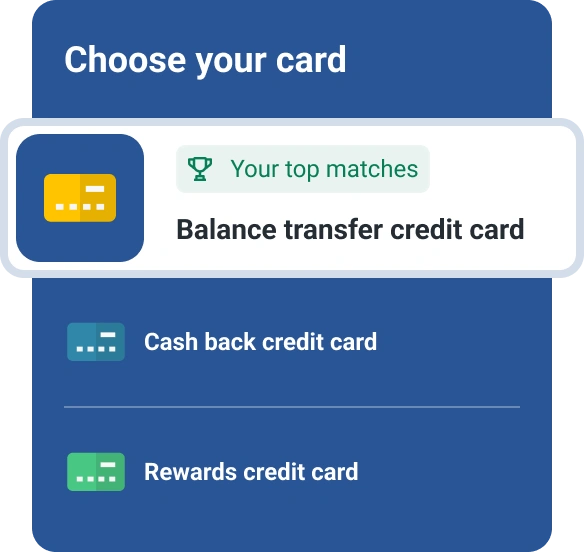Can I Close a Credit Card With a Balance?

You don't need to pay off your credit card before closing your account. However, given the downsides, it's not usually advantageous to close the account. If you end up going through with it, you'll still need to pay off any remaining balance, and the card issuer can continue to charge you interest.
What Happens After You Close Your Credit Card?
Once you close your credit card, you won't be able to use it for new purchases or transfers. However, the card agreement still applies, and you have a legal obligation to pay off the debt.
After closing your card:
- You'll receive monthly statements. The card issuer will send you monthly statements with your balance, accrued interest and minimum payment.
- Interest continues to accrue. The credit card issuer can charge you interest on the account's remaining balance until you pay it off.
- Card issuers can't charge you new or higher fees. Card issuers can't charge you a fee to close your account or increase your card's annual or monthly fee. But you may still have to pay annual or monthly fees until you pay off the balance.
If you've been making and continue to make payments on time, your account can remain in good standing after it's closed. However, missed payments could lead to fees and derogatory marks on your credit report that hurt your scores.
How Closing Credit Cards With Balances Can Impact Your Credit
Closing a credit card can impact your credit scores in several ways. Closed accounts in good standing stay on your credit reports for up to 10 years. If you're behind on payments when you close the card, the account might fall off your credit report seven years after its original delinquency date.
In either case, the account can impact your credit scores as long as it's on your credit report. However, some of the effects depend on whether the card has a balance and the type of credit score. For accounts closed in good standing, the positive impact they can have on your credit scores may be less than if they were still actively being used.
Generally, closing a card without a balance might hurt your credit scores if it increases your credit utilization ratio. For both FICO® and VantageScore® credit scores and regardless of whether it has a balance, the account's age and payment history can impact your credit scores until the account falls off your credit reports.
The Benefits of Closing a Credit Card
There are a few situations when you might want to close a credit card with a balance.
- Avoid annual fees. You may be able to avoid paying an annual fee by closing your credit card before—or soon after—your anniversary month with the card.
- No temptation to use the card. For people who tend to overspend when they have available credit, closing the credit card could be a good option.
- Fewer accounts to manage. Having fewer accounts open could make managing your personal finances easier. However, you'll have to make payments until you pay off the balance.
Despite potential benefits of closing a card, sometimes it makes more sense to keep your card open.
Should You Keep the Credit Card Account Open?
Keeping your credit card open might be a better idea when:
- You can switch cards. Some card issuers let you upgrade or downgrade cards without closing and opening a new account. If you're primarily concerned about an annual fee, see if you can switch to a card that doesn't have an annual fee instead.
- You have rewards in your account. If you have a rewards card, you may lose the rewards in your account (or have a limited time to use them) once your account is closed. You may want to keep the card open until you can use the rewards or transfer them to a different credit card or loyalty program.
- You don't use the card. If you're not worried about overspending and don't use the card, keeping the credit card open may be better for your credit scores.
Whether or not you decide to close the card, you may want to come up with a plan for paying off the debt.
How to Pay Off the Credit Card Balance
Paying off credit card debt can be challenging, as credit cards tend to have high interest rates and low minimum payment requirements. Here are some tools and strategies you might consider:
- Debt consolidation loans: Depending on your creditworthiness, you might qualify for a personal loan with a low interest rate. You could use it to consolidate credit card debts or pay off a single credit card. The loan's fixed interest rate and monthly payment can make it easier to manage than credit cards.
- Balance transfer cards: Open a new credit card that has a promotional balance transfer offer for 0% interest during an introductory period. Then, you can transfer the balance and pay it down over time without accruing interest. Just be sure to pay it down before the introductory period ends and the higher interest rate kicks in. Also keep in mind that many cards charge a balance transfer fee, which is commonly 3% or 5%.
- Debt avalanche or snowball: If you're paying down multiple debts, you might want to use the debt avalanche or snowball method to either focus on paying off the highest-rate or lowest-balance debts first.
- Debt management plan: A credit counseling agency can create a debt management plan (DMP) for you to help with your credit card debt. A credit counselor can try to negotiate better interest rates, waived fees and lower monthly payments with your creditors. If you stick to the plan, you could pay off all the included credit cards within three to five years.
Monitor Your Credit
Keeping an eye on your credit can be an important part of managing your personal finances. Look for unusual or suspicious activity in your credit reports, which may indicate fraud. And know when your credit scores may be high enough to qualify for a debt consolidation loan or balance transfer card with favorable terms. With Experian, you can check your report and FICO® ScoreΘ for free.
Don’t apply blindly
Apply for credit cards confidently with personalized offers based on your credit profile. Get started with your FICO® Score for free.
See your offersAbout the author
Louis DeNicola is freelance personal finance and credit writer who works with Fortune 500 financial services firms, FinTech startups, and non-profits to teach people about money and credit. His clients include BlueVine, Discover, LendingTree, Money Management International, U.S News and Wirecutter.
Read more from Louis

